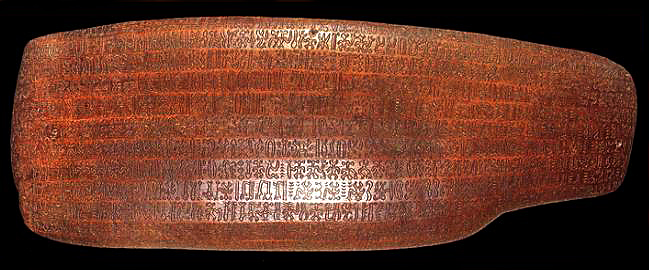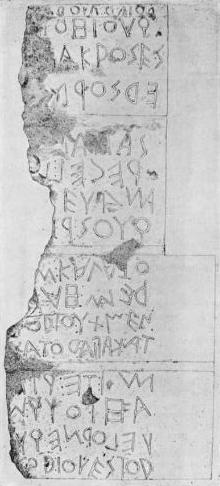Boustrophedon is a style of writing in which alternate lines of writing are reversed, with letters also written in reverse, mirror-style.

The original term comes from Ancient Greek: “like the ox turns [while plowing]”. It is mostly seen in ancient manuscripts and other inscriptions. It was a common way of writing on stone in Ancient Greece.
A fun variation is the reverse boustrophedon: the text in alternate lines is rotated 180 degrees rather than mirrored.
The reader begins at the bottom left-hand corner of a tablet, reads a line from left to right, then rotates the tablet 180 degrees to continue on the next line from left to right again. When reading one line, the lines above and below it appear upside down.

I heard about it on a podcast about the Rapa Nui people of Easter Island. They use used the reverse boustrophedon style for their system of glyphs called Rongorongo, which remains undeciphered.

Are there any scripts in which all the characters are symmetrical across the vertical axis? So that, when written like this, the letters would be the same either way.
There is a certain elegance to this kind of writing. I was surprised how easy it is to read. Maybe I have an advantage because I’ve always made it a little mental game to read mirrored text when I see it either in an actual mirror or from the wrong side of a clear pane of glass. The utility of the ox turn method seems to shine when the inscription is on a tablet that can be held and turned in one’s hands.



